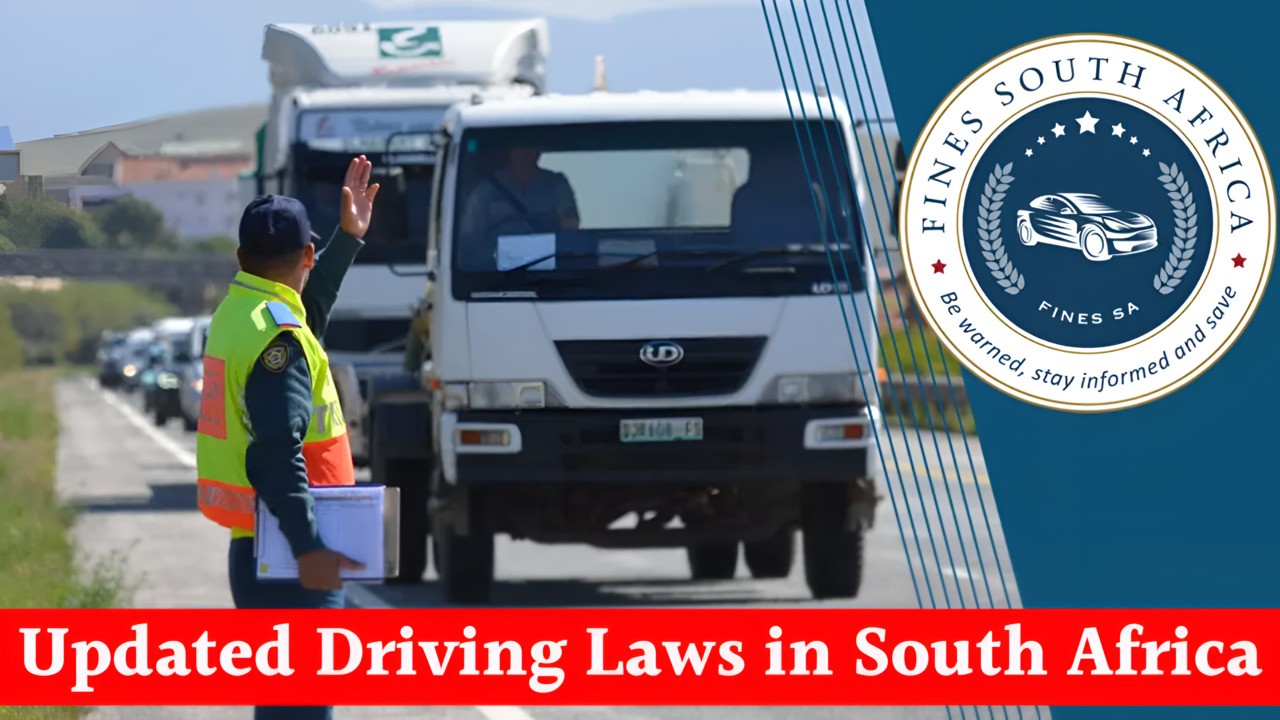Updated Driving Laws in South Africa 2025: South Africa has introduced several updated driving laws in 2025 to improve road safety and reduce accidents. These changes affect all road users, including private vehicle owners, public transport drivers, and motorcyclists. Understanding these new regulations is essential to avoid fines, penalties, and legal issues. This article provides a detailed look at the latest driving laws, how they impact drivers, and what you need to do to stay compliant.
Key Changes in South Africa’s Driving Laws 2025
The government has made several updates to the country’s traffic laws, focusing on stricter enforcement, higher penalties, and the introduction of new road safety measures.
1. Introduction of the New Demerit System
The long-awaited Administrative Adjudication of Road Traffic Offences (AARTO) demerit system is now fully in effect. Under this system:
- Drivers accumulate points for traffic violations
- Exceeding the maximum allowed points can result in suspension or cancellation of a driving license
- Fines will be automatically processed, reducing the need for court appearances
2. Stricter Drunk Driving Laws
South Africa has now adopted a zero-tolerance policy for alcohol consumption while driving. The new legal alcohol limit is 0.00%, meaning any detectable alcohol in your bloodstream can result in penalties, including:
- Heavy fines or imprisonment
- Immediate suspension of a driving license
- Possible criminal charges for repeat offenders
3. Increased Speeding Penalties
The government has introduced harsher fines for exceeding speed limits, especially in urban areas and near schools. Key changes include:
- Higher penalties for speeds exceeding 30 km/h over the limit in city areas
- Mandatory court appearances for excessive speeding offenses
- More speed cameras installed on highways and main roads
4. Mandatory Use of Dashcams for Public Transport Vehicles
To improve passenger safety and monitor driver behavior, taxis, buses, and ride-hailing services must now install dashcams. This rule helps authorities:
- Investigate accidents more effectively
- Monitor reckless driving
- Reduce corruption and bribery attempts
5. Stricter Regulations for Learner and New Drivers
New drivers now face additional restrictions before obtaining a full license:
- Learners must complete a minimum of 120 hours of supervised driving before taking the driving test
- Newly licensed drivers will be subject to a two-year probationary period, during which they must maintain a clean driving record
- Any serious traffic violation during this period could result in the cancellation of the license
6. Ban on Using Mobile Phones While Driving
The law now strictly prohibits the use of handheld mobile phones while driving. Even holding your phone while at a red light is illegal. Drivers can:
- Only use hands-free devices
- Face fines and demerit points for any violation
- Have their phones confiscated in severe cases
How These Laws Impact Drivers
The updated laws bring significant changes to daily driving habits. Here’s how they will affect different groups of drivers:
Private Vehicle Owners
- Stricter rules mean drivers must be extra cautious about obeying speed limits, avoiding distractions, and never driving under the influence
- Failure to follow the demerit system could result in losing the right to drive
Public Transport Drivers
- Taxi and bus drivers will need to follow stricter rules, especially with dashcams monitoring their driving habits
- Increased penalties for reckless driving could lead to job losses for repeat offenders
New Drivers
- Extended learner driver requirements mean that getting a license will take longer, but it aims to produce safer, more experienced drivers
- Probationary rules mean new drivers must drive carefully to avoid losing their license
Motorcyclists
- Stricter speed limits and new helmet safety regulations ensure that motorcyclists must take extra precautions on the road
- The government is considering mandatory protective gear beyond helmets, such as riding jackets and gloves
Penalties for Violating the New Laws
The 2025 updates come with higher fines and tougher consequences for breaking traffic rules. Some key penalties include:
- Driving under the influence – Fines up to R200,000 or jail time
- Excessive speeding – Fines starting at R5,000 and potential license suspension
- Using a mobile phone while driving – Fines of up to R2,500 and confiscation of the phone
- Accumulating too many demerit points – Suspension or cancellation of the driving license
How to Stay Compliant with the New Laws
To avoid penalties and ensure safe driving, follow these tips:
1. Stay Informed
- Regularly check for traffic law updates on official government websites
- Follow road safety campaigns and awareness programs
2. Drive Responsibly
- Never drink and drive use public transport or a ride-hailing service if needed
- Keep within speed limits, especially in school zones and residential areas
3. Use Technology Wisely
- Install hands-free devices if you need to make calls while driving
- If you drive for a living, ensure your dashcam is properly installed and working
4. Keep Your Vehicle Roadworthy
- Ensure your car is properly maintained to avoid fines related to faulty brakes, worn-out tires, or broken lights
5. Educate Young Drivers
- Parents should help young drivers gain experience and understand the importance of road safety before getting a full license
Conclusion
The updated driving laws in South Africa for 2025 aim to make the roads safer by enforcing stricter penalties and new regulations. Whether you’re a private driver, a public transport operator, or a new driver, it’s essential to stay informed and follow the rules to avoid fines, license suspension, or legal action. By driving responsibly and adapting to these changes, all road users can contribute to a safer driving environment in South Africa.




